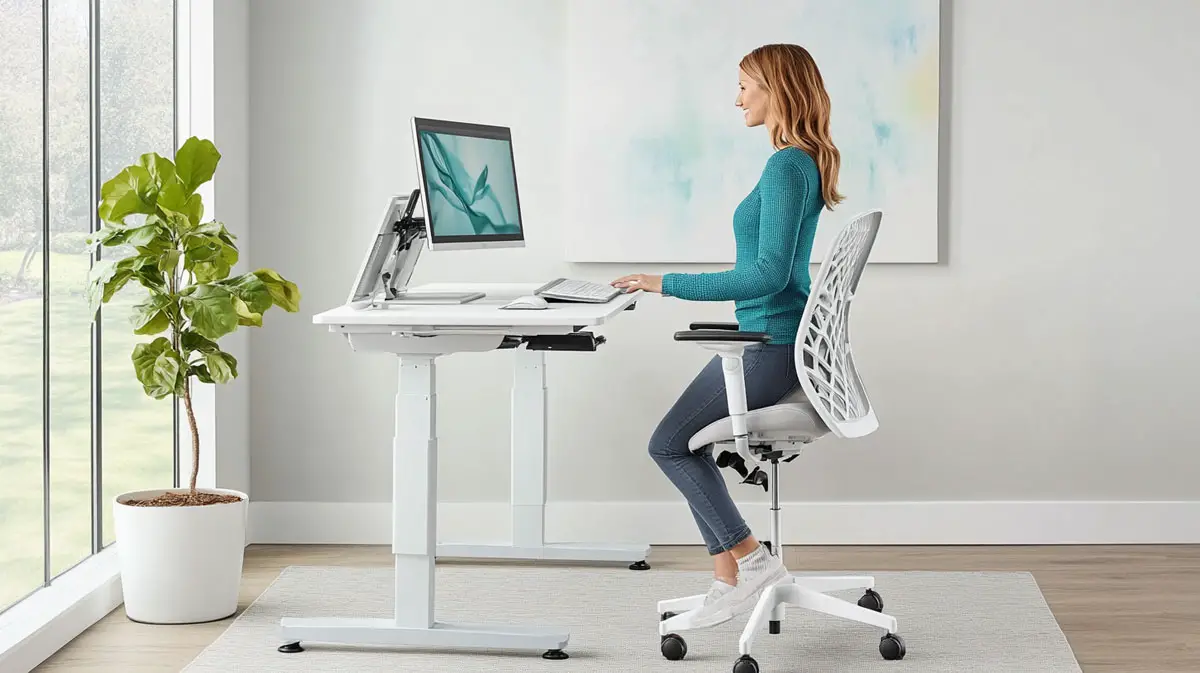10 of the Most Common Workplace Injuries and How to Avoid Them

Workplace injuries can happen to anyone, no matter what job you do. Some are minor, some are more serious, but the good news is that most of them can be avoided. Employers have a legal duty to keep you safe at work, but employees can also take steps to protect themselves.
Whether you’re working in an office, on a construction site or in a warehouse, knowing the risks and how to prevent them will help keep you safe. Here are ten of the most common workplace injuries – and what you can do to avoid them.
Slips, Trips and Falls
Slips, trips and falls happen all the time. It only takes something as simple as a spilt drink, a loose cable or a weak floor panel to catch you off guard. Fortunately, these are some of the easiest accidents to avoid.
If you see something that looks like a trip hazard, don’t just step around it – report it. If there’s a spillage, clean it up or make sure there’s a sign to warn others. If you work in an environment with slippery floors, make sure you’re wearing the right shoes, because it really can make all the difference.
Manual Handling Injuries
Lifting something heavy the wrong way might not seem like a big deal at the time, but a bad back or muscle strain can stick with you for years. If you need to lift something, don’t rush it – bend your knees, keep your back straight, and lift with your legs. If something’s too heavy, assess whether you can safely lift it on your own. If not, ask for help or use lifting equipment. Taking a few extra seconds to lift properly, or reconsider how you and your colleagues approach the situation, could save you a lot of pain in the long run.
Being Hit by Falling Objects
A stray box, a loose tool or something that has not been stacked properly can easily fall of a shelf and come down fast – and it can do some real damage. If you’re working in a stockroom, warehouse or anywhere with overhead storage, make sure things are stacked securely. If you’re walking through an area where items could fall, be aware of your surroundings – and if hard hats are required, wear one.
Falls from Height
If you use ladders, scaffolding or work on raised platforms, a fall could leave you with serious injuries. Before climbing anything, check that it’s stable. If you’re using a ladder, make sure it’s on even ground and fully locked in place. Ask a colleague you trust to hold the base. If there’s a harness available, wear it. It might feel like a hassle, but it could save you from a nasty fall.
Workplace Vehicle Accidents
Forklifts, delivery vans site vehicles – if you work around moving vehicles, it’s important to stay alert. You can’t assume a driver is always going to be aware of every angle, particularly when manoeuvering a lorry into an unloading bay, or moving pallets around a storage area. Always stick to designated walkways, and if you’re driving, take an extra second to check your surroundings. If a vehicle is reversing, make sure the driver can see you before you walk behind. It’s easy to assume someone will stop, but it’s better not to take that risk.
Exposure to Harmful Substances
Long-term exposure to chemicals, dust and fumes can cause serious health problems. If your job involves handling substances like paint, cleaning products or industrial chemicals, make sure you’re using the right protective gear. Gloves, masks and goggles are there to protect you from burns, irritation and long-term health issues such as breathing problems. If there’s ventilation available, use it, and always follow the safety instructions.
Repetitive Strain Injuries (RSI)
When typing all day or using tools repeatedly, the repetitive movements can take a toll on your body over time. Aching wrists, stiff shoulders or numb fingers can all be signs of RSI. The best way to prevent it is to set up your workstation properly – keep your screen at eye level, your chair at the right height, and your wrists supported. Take regular breaks, even if it’s just a minute to stand up and stretch. A few small adjustments now could save you from chronic pain later.
Cuts and Lacerations
Sharp tools, machinery, even paper – there are plenty of ways to cut yourself at work. If you’re using equipment with blades or sharp edges, take your time and use it properly. Safety guards are there for a reason, and gloves can help if you’re handling sharp materials. If something breaks, clear it up properly to make sure no one else gets hurt.
Electrical Injuries
Faulty wiring, overloaded sockets and handling electrical equipment without proper training can lead to shocks, burns or even fires. If you spot exposed wires or damaged plugs, don’t ignore them – report them so they can be fixed. If you’re not trained to deal with a piece of machinery, don’t try to fix it yourself. And if you work with electrical equipment, always switch it off properly before carrying out any maintenance.
Stress-Related Injuries and Illnesses
Not all workplace injuries are physical. Long hours, unrealistic deadlines and constant pressure can lead to stress, anxiety and even physical health problems. If your workload is becoming overwhelming, speak up – whether that’s to your manager, a colleague or someone in HR. Trying to take regular breaks, get fresh air and maintain a healthy work-life balance can all reduce stress. Work can be challenging, but it shouldn’t come at the cost of your health.
Get Legal Advice
Sometimes accidents do happen at work that weren’t your fault, and leave you with injuries that affect your health, ability to work and overall wellbeing. Talking to a legal professional can help you look at your options for making an accident at work claim.
Consulting a solicitor will help you navigate the process of claiming compensation for costs such as rehabilitation, medical expenses and lost income. They will be able to answer any concerns you might have, and support you throughout the process so you can focus on your recovery with peace of mind.










